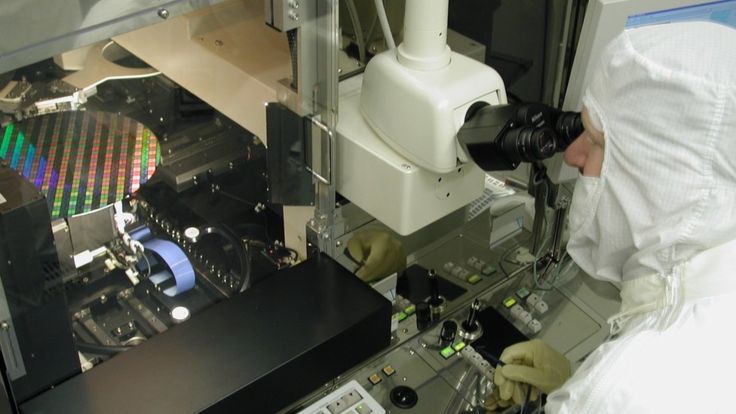Widely perceived as bitter rivals, Intel and ARM have agreed to a deal that will benefit the two companies — specifically, one of Intel’s factories will begin manufacturing ARM-based chips for smartphone manufacturer, LG.

Upon announcing the agreement, the two companies said they expected the move to be “mutually beneficial.”
This is a monumental agreement for a number of reasons, chief being the fact that these two dominant brands in their respective markets — Intel and its x86 chip architecture in PCs and ARM-based chips in mobile devices — have found common ground to begin working together.
“This agreement is one example of that and will deliver immense value to the design ecosystem and ultimately to our partners,” blogged Will Abbey, an executive at ARM.
Intel began making processors for other semiconductor manufacturers a little over three years ago. Among the company’s clientele was Altera, a company that incorporated some of ARM’s technologies. Last year, Intel made the decision to buy Altera, thus establishing a direct relationship with their perceived rivals.
In the announcement, Intel explained that LG (and future customers) would now be able to combine the company’s ability to make 10-nanometer transistors (which are advertised as having performance gains over existing 14-nm transistors) with ARM’s most advanced designs (for those unfamiliar, ARM does not make chips, but rather licenses its inventions to manufacturers, who then use it to customize their designs).
Among those directly impacted by this partnership are Samsung, GlobalFoundries, and Taiwan Semiconductor Manufacturing Company, all of which presently manufacture a significant portion of the world’s ARM-based processors.
The timing of the agreement is a bit curious. For one, it follows Intel’s decision to cancel its release of new Atom chips — processors based on the company’s own design, which were being created for mobile devices.
Also, it comes on the heels of last month’s announcement that Japan’s Softbank was buying ARM for $32 billion.
Ultimately, though, this agreement best exemplifies how strongly Intel wants to become a player in the mobile market. It should be noted though, that this agreement does not jump the company to the front of the line. It’s actually a long road ahead. Apple, for example, already relies on Samsung and Taiwan Semiconductor Manufacturing Company to manufacture its chips. Samsung, obviously, relies on its own chips.
So, in order to truly establish a more significant presence in this market, Intel will need to work mightily at expanding its roster beyond LG.
Via the BBC
Advertisement
Learn more about ARMIntel





